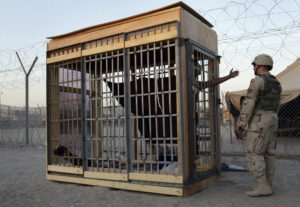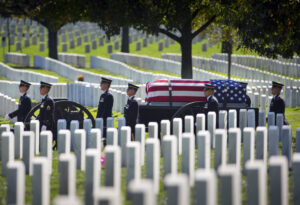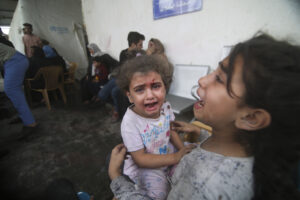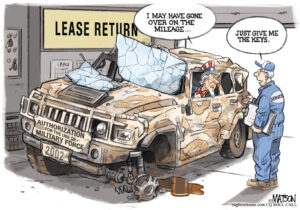Veterans Face Neglect and Frustration on Road to Recovery
The war wounded continue to accumulate at Walter Reed, facing a limbo of staff limitations, exhausted caseworkers, bureaucratic red tape and long recoveries This two-part series from The Washington Post is a must-read investigation of the "safety net" that is failing the veterans of this war (P1, P2).The wounded continue to accumulate at Walter Reed, but soldiers face a limbo of staff limitations, exhausted caseworkers, bureaucratic red tape and long recoveries. This two-part series from The Washington Post is a must-read investigation of the “safety net” that is failing the veterans of this war.
Your support matters…Part I: Soldiers Face Neglect, Frustration At Army’s Top Medical Facility By Dana Priest and Anne Hull
Behind the door of Army Spec. Jeremy Duncan’s room, part of the wall is torn and hangs in the air, weighted down with black mold. When the wounded combat engineer stands in his shower and looks up, he can see the bathtub on the floor above through a rotted hole. The entire building, constructed between the world wars, often smells like greasy carry-out. Signs of neglect are everywhere: mouse droppings, belly-up cockroaches, stained carpets, cheap mattresses.
This is the world of Building 18, not the kind of place where Duncan expected to recover when he was evacuated to Walter Reed Army Medical Center from Iraq last February with a broken neck and a shredded left ear, nearly dead from blood loss. But the old lodge, just outside the gates of the hospital and five miles up the road from the White House, has housed hundreds of maimed soldiers recuperating from injuries suffered in the wars in Iraq and Afghanistan.
Part II: The Hotel Aftermath By Anne Hull and Dana Priest The conflict in Iraq has hatched a virtual town of desperation and dysfunction, clinging to the pilings of Walter Reed. The wounded are socked away for months and years in random buildings and barracks in and around this military post.
The luckiest stay at Mologne House, a four-story hotel on a grassy slope behind the hospital. Mologne House opened 10 years ago as a short-term lodging facility for military personnel, retirees and their family members. Then came Sept. 11 and five years of sustained warfare. Now, the silver walkers of retired generals convalescing from hip surgery have been replaced by prosthetics propped against Xbox games and Jessica Simpson posters smiling down on brain-rattled grunts.
Two Washington Post reporters spent hundreds of hours in Mologne House documenting the intimate struggles of the wounded who live there. The reporting was done without the knowledge or permission of Walter Reed officials, but all those directly quoted in this article agreed to be interviewed.
From Truthdig: “The Forgotten Wounded of Iraq” Ron Kovic, author of “Born on the Fourth of July,” writes a compelling and empathetic piece on his personal experiences and concerns for a new generation of veterans returning from war.
Independent journalism is under threat and overshadowed by heavily funded mainstream media.
You can help level the playing field. Become a member.
Your tax-deductible contribution keeps us digging beneath the headlines to give you thought-provoking, investigative reporting and analysis that unearths what's really happening- without compromise.
Give today to support our courageous, independent journalists.






You need to be a supporter to comment.
There are currently no responses to this article.
Be the first to respond.